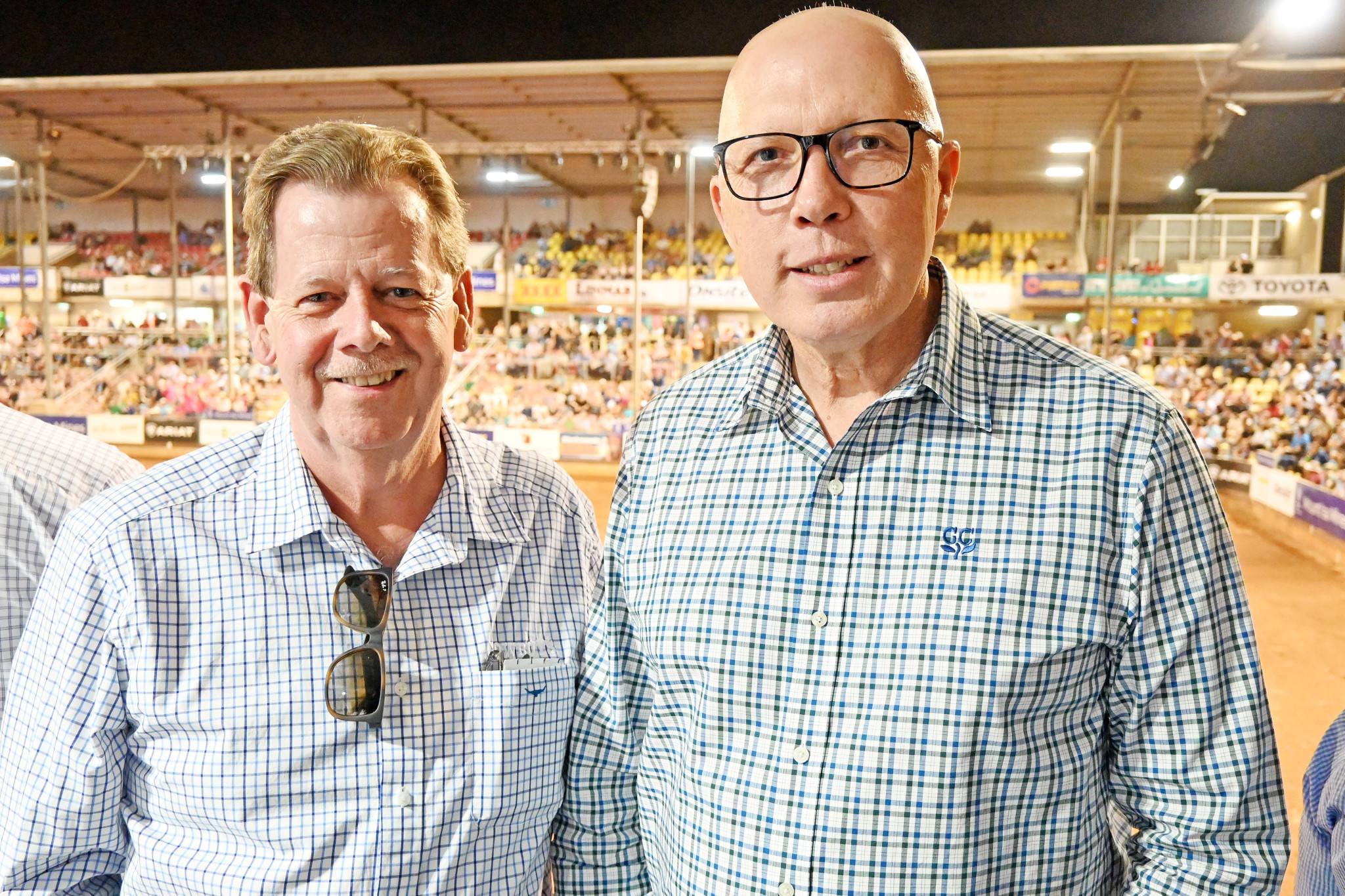General News
14 August, 2024
Opposition leader keen on tax benefits for the North West
Peter Dutton said the LNP would look at all options to help regions struggling in the cost-of-living and jobs crisis.

Federal opposition leader Peter Dutton says there is a “moral argument” to support changes to taxation laws to retain skilled workers and address cost of living pressures across North West communities.
Mr Dutton travelled to Mount Isa on Friday where he toured Popeys Diesel Services, met with city leaders behind closed doors at The Buffs Club and toured the rodeo grounds to press the flesh with voters.
With the Coalition neck and neck with Labor in the latest polls, Mr Dutton was keen to discuss the need to support local manufacturing and accused the Prime Minister of chasing inner city green votes at the expense of rural and regional communities.
However, when asked by North West Weekly whether he would support changes to current taxation laws, notably the zonal tax offset (ZTO), in order to retain skilled workers in Mount Isa, Mr Dutton was receptive to the idea.
“We’re happy to have a look at taxation arrangements,” he said.
“I think there are arguments for people who live in regional towns where you’re paying more for petrol, you’re paying more for your electricity, paying more for housing – there’s an additional cost that comes with it and you’re producing, in many cases, royalties and company tax that go to benefit people in capital cities.
“I just think they’re all common sense discussions that we should have, and it should include a discussion around whether the current taxation arrangements are fit for purpose and whether it’s through tax or other programmes where we can help provide benefit to a local community.”
Mr Dutton’s response was widely circulated across metropolitan media outlets, with a spokesperson confirming the Coalition was considering changes to taxation laws impacting rural communities as part of its upcoming election platform.
Major population centres in the North West, such as Mount Isa and Cloncurry, currently fall into the Zone A offset category, which qualify residents for a $338 offset.
More remote areas, such as in the Gulf, are classed as special areas and qualify for the maximum $1173 offset.
The offset rates have drawn repeated criticism for many years because they have not increased since 1993-94, and the value of the offset to claimants has fallen significantly in real terms.
According to the Productivity Commission, the ZTO represents less than one per cent of after-tax income for more than 80 per cent of claimants.
But whereas many rural-based politicians have long argued the offset should be increased, the Productivity Commission claimed in a 2020 report, the offset rate was so low that it should be abolished.
The Productivity Commission also made the argument in its report that there was little difference in the cost of living between regional communities and cities.
The report found “no evidence” the ZTO could encourage relocation and saw “no general role for government” in trying to do so.
Adding to the complications, some constitutional scholars believe any increase to the offset could face a challenge in the High Court – although none seemed to explain exactly who would launch such a challenge.
Despite this, Mr Dutton told Mount Isa media that “some of that law frankly needs to be tested”.
Mount Isa mayor Peta MacRae, who has spoken several times about reviewing the ZTO as a way to attract families to the city, said she believed Mr Dutton was listening during his North West visit.
“He (Peter Dutton) understands the problems and the need for federal funding,” she told North West Weekly.
“He said the government has a large budget to support regional areas like Mount Isa.”